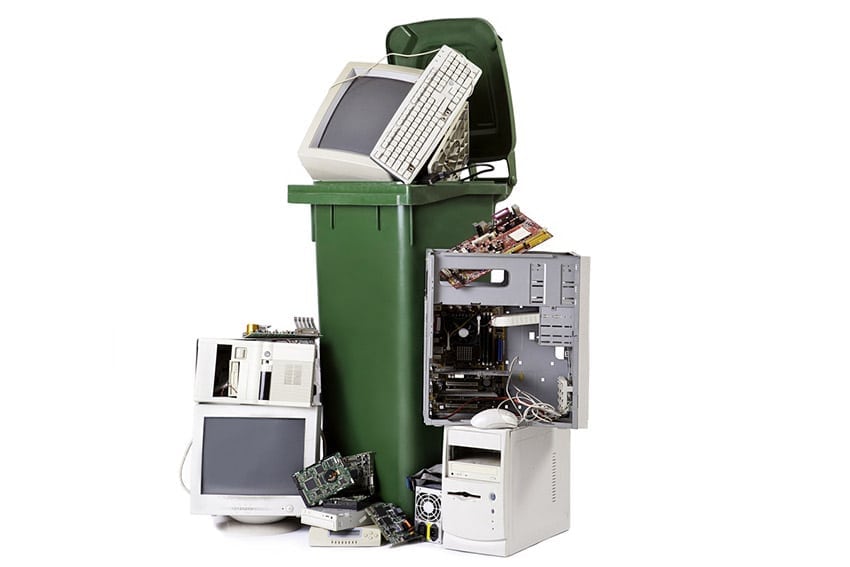
Bluskystudio/Shutterstock
In today’s increasingly digital world, access to technology has become more crucial than ever. Digital Inclusion Week, which is next week (Oct. 2-6), is a timely reminder of the ongoing efforts to bridge the digital divide and ensure everyone has equal opportunities in the digital age.
While this annual observance focuses on various aspects of digital inclusion, one often overlooked yet vital player in this arena is the e-scrap industry. In this article, we will explore the significant role that responsible e-scrap management plays in digital inclusion efforts and how recycling and refurbishing electronics can benefit both communities and businesses.
E-recycling’s role in digital inclusion
Digital inclusion isn’t just about providing internet access; it’s also about ensuring families and individuals have the necessary devices to connect to the digital world. This is where e-recycling comes into play.
Millions of electronic devices become obsolete yearly, contributing to the growing environmental problem of electronic waste. However, these devices can still be valuable resources for many who need help to afford brand-new technology. When companies choose responsible e-scrap management that involves refurbishing these devices and making them available at affordable prices, they reduce the digital divide, promote sustainable consumption and reduce e-waste in landfills.
Benefit your business through e-recycling
For companies, engaging in responsible e-scrap management is a social responsibility and a smart business move. Donating or recycling electronics can lead to tax deductions, reducing the overall tax burden for organizations. Furthermore, it can enhance a company’s environmental, social and governance (ESG) reputation, appealing to socially conscious consumers and investors. Sustainable practices in e-recycling contribute positively to a company’s ESG scorecard.

Joseph Benson
Keeping your e-waste donation secure
When looking to make a difference through your e-waste, whether as individuals or businesses, you will still need to choose an e-recycler that adheres to responsible and sustainable practices. Look for certifications like R2 (Responsible Recycling) or e-Stewards, which ensure ethical and eco-friendly recycling methods. You will also want to look for data security certifications like NAID-AAA to ensure your data is properly destroyed.
While only a few e-recyclers meet the criteria above for secure data destruction, sustainable recycling and community benefit, PCs for People is an excellent option for U.S. companies. It offers no-cost white-glove pickup services for companies within their service areas and national shipping logistics if needed. All devices are assessed, wiped, and then either recycled or refurbished for low-income households at an affordable price.
Take action during Digital Inclusion Week
Digital Inclusion Week is a reminder that access to technology is a fundamental necessity in today’s world. The e-scrap industry has a pivotal role in digital inclusion by responsibly recycling and refurbishing electronics. By supporting worthy initiatives and choosing responsible e-recycling practices, we can collectively bridge the digital divide, benefit our communities and contribute to a more sustainable future.
Joseph Benson is the vice president of business development for PCs for People.
The views and opinions expressed are those of the author and do not imply endorsement by Resource Recycling, Inc. If you have a subject you wish to cover in an op-ed, please send a short proposal to [email protected] for consideration.

